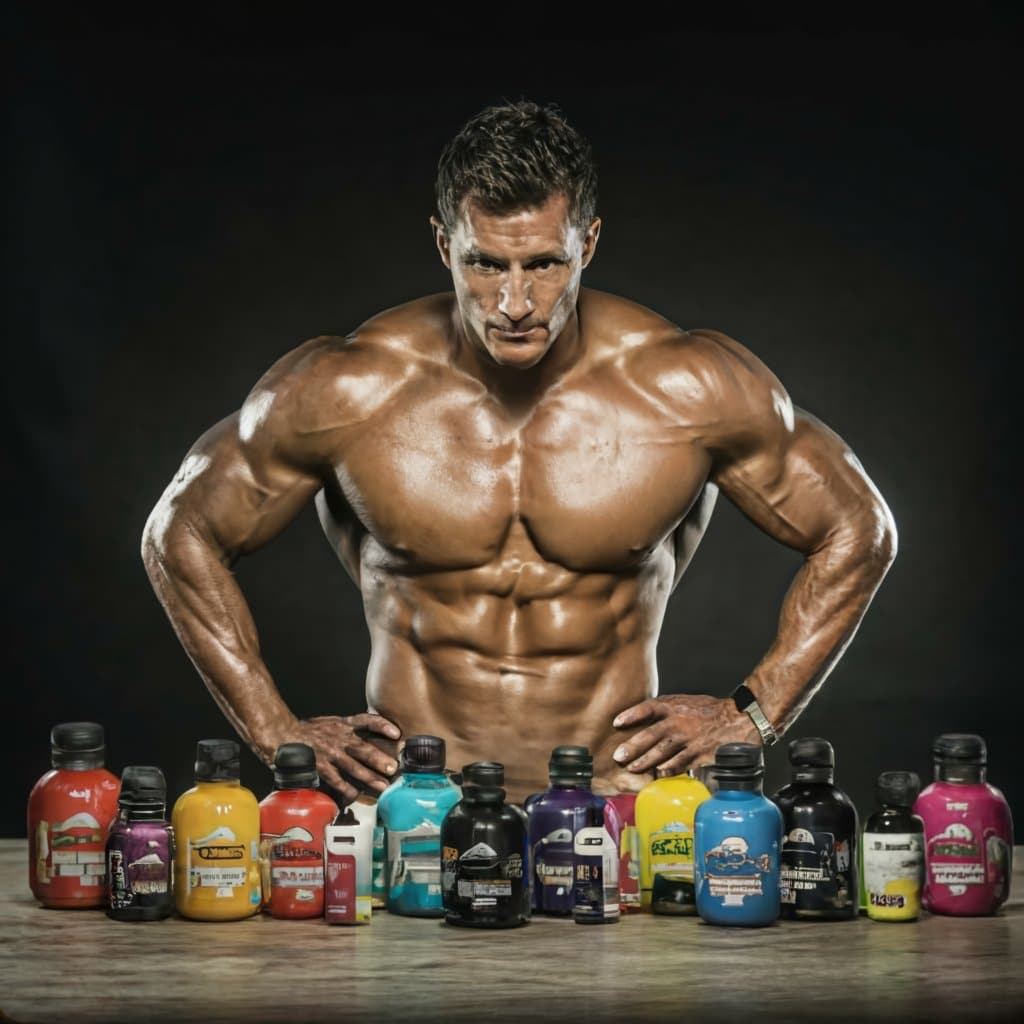Bodybuilding Supplement Recommendations: A Comprehensive Guide
Bodybuilding, the pursuit of enhanced muscle mass and definition, requires a multifaceted approach encompassing rigorous training, a meticulously planned diet, and, for many, the strategic use of supplements. While supplements are not a magic bullet, they can play a significant role in supporting your training goals by addressing nutritional gaps and optimizing recovery. This comprehensive guide provides evidence-based recommendations on bodybuilding supplements, clarifying their benefits, potential side effects, and proper usage.
I. Foundational Supplements: Before exploring niche supplements, it’s crucial to establish a strong foundation with these essential components:
A. Protein Powder: Arguably the most crucial supplement for bodybuilders, protein powder provides a convenient and efficient way to increase daily protein intake. Protein is the building block of muscle tissue, and consuming sufficient amounts is essential for muscle growth and repair.
-
Types: Whey protein (fast-digesting), casein protein (slow-digesting), soy protein, and brown rice protein are popular choices. Whey is generally preferred for post-workout recovery due to its rapid absorption rate, while casein is ideal for overnight muscle protein synthesis. Choosing a protein source depends on individual dietary preferences and tolerances.
-
Dosage: The recommended daily protein intake for bodybuilders ranges from 1.6 to 2.2 grams per kilogram of body weight. Protein powder can supplement the dietary intake to meet these needs.
-
Potential Side Effects: Some individuals may experience digestive discomfort, such as bloating or gas, especially with whey protein. Choosing a hydrolyzed or isolate form can minimize these effects.
B. Creatine: Creatine monohydrate is arguably the most researched and effective bodybuilding supplement. It enhances adenosine triphosphate (ATP) production, the primary energy source for muscle contractions, leading to increased strength, power, and muscle mass.
-
Mechanism of Action: Creatine increases the water content in muscle cells, leading to increased cell volume and improved muscle protein synthesis.
-
Dosage: A loading phase of 20 grams per day for 5-7 days, followed by a maintenance dose of 3-5 grams per day, is generally recommended.
-
Potential Side Effects: While generally safe, some individuals may experience water retention, weight gain, and gastrointestinal discomfort.
C. Caffeine: Caffeine is a widely used stimulant that enhances athletic performance by increasing alertness, focus, and energy levels. It can improve workout intensity and endurance.
-
Mechanism of Action: Caffeine blocks adenosine, a neurotransmitter that promotes relaxation and sleepiness, leading to increased alertness and energy. It also mobilizes fatty acids, providing an alternative energy source during exercise.
-
Dosage: The optimal dose varies between individuals, but generally, 3-6 mg per kilogram of body weight is effective.
-
Potential Side Effects: Excessive caffeine intake can lead to anxiety, insomnia, jitters, and digestive issues.
II. Advanced Supplements (Considered after establishing a solid foundation):
A. Branched-Chain Amino Acids (BCAAs): BCAAs (leucine, isoleucine, and valine) are essential amino acids that play a crucial role in muscle protein synthesis and reducing muscle soreness.
-
Mechanism of Action: Leucine, in particular, acts as a potent trigger for muscle protein synthesis. BCAAs may also help reduce muscle damage and improve recovery.
-
Dosage: 5-10 grams per day, often taken before or after workouts, is a common recommendation.
-
Potential Side Effects: Generally well-tolerated, but some individuals may experience digestive discomfort.
B. Beta-Alanine: Beta-alanine is a non-essential amino acid that acts as a precursor to carnosine, a compound that buffers lactic acid buildup in muscles. This can improve high-intensity exercise performance and reduce muscle fatigue.
-
Mechanism of Action: By buffering lactic acid, beta-alanine allows for more intense and prolonged exercise before fatigue sets in.
-
Dosage: 3-6 grams per day, often divided into multiple doses, is typically recommended.
-
Potential Side Effects: A common side effect is paresthesia (a tingling sensation), which is generally harmless and temporary.
C. Glutamine: Glutamine is a conditionally essential amino acid that plays a crucial role in immune function and gut health. It may also aid in muscle recovery and reduce muscle soreness.
-
Mechanism of Action: Glutamine supports the immune system, which is crucial for recovery after intense training. It also plays a role in protein synthesis.
-
Dosage: 5-10 grams per day is often recommended.
-
Potential Side Effects: Generally well-tolerated, but high doses may cause digestive discomfort.
D. Fish Oil: Rich in omega-3 fatty acids (EPA and DHA), fish oil offers numerous health benefits, including reduced inflammation, improved heart health, and enhanced brain function. In the context of bodybuilding, it may help reduce muscle soreness and inflammation associated with intense training.
-
Dosage: 2-4 grams of combined EPA and DHA per day is commonly recommended.
-
Potential Side Effects: Fish oil can cause digestive upset, such as nausea and diarrhea, in some individuals.
III. Supplements to Approach with Caution:
A. Pre-workout Supplements: These often contain stimulants like caffeine, beta-alanine, and citrulline malate, aimed at enhancing energy, focus, and performance. While some ingredients may be beneficial, the efficacy of many pre-workout supplements is questionable, and they can contain high levels of stimulants. Always carefully review the ingredients and consider potential side effects.
B. Testosterone Boosters: Many "testosterone boosters" make unsubstantiated claims. While some ingredients like D-aspartic acid may have a mild effect on testosterone levels, the results are often modest and individual responses vary. It’s crucial to be wary of products making exaggerated claims.
C. Fat Burners: These supplements often contain stimulants and other ingredients purported to increase metabolism and fat burning. However, the effectiveness of many fat burners is limited, and they can have potential side effects, particularly related to cardiovascular health.
IV. Important Considerations:
-
Consult a Healthcare Professional: Before starting any new supplement regimen, it’s essential to consult a doctor or registered dietitian, especially if you have any underlying health conditions.
-
Prioritize Diet and Training: Supplements should complement, not replace, a healthy diet and consistent training program. They are not a shortcut to success.
-
Read Labels Carefully: Pay close attention to the ingredients, dosage, and potential side effects listed on supplement labels. Choose reputable brands that undergo third-party testing.
-
Start with a Single Supplement: Avoid overwhelming your system by taking multiple supplements simultaneously. It’s better to start with one supplement, assess its impact, and then gradually add others.
-
Be Patient and Consistent: Results from supplements take time and are not always immediate. Maintain consistency with your training and diet for optimal results.
In conclusion, bodybuilding supplements can play a supportive role in achieving your fitness goals, but they should be viewed as tools to enhance, not replace, the fundamental pillars of bodybuilding: proper nutrition and consistent training. By carefully selecting and using supplements, understanding their potential benefits and risks, and prioritizing a healthy lifestyle, you can maximize your chances of success on your bodybuilding journey. Remember that individual responses to supplements vary, and it’s crucial to listen to your body and adjust your approach as needed. Always consult with a healthcare professional before incorporating any new supplement into your routine.



